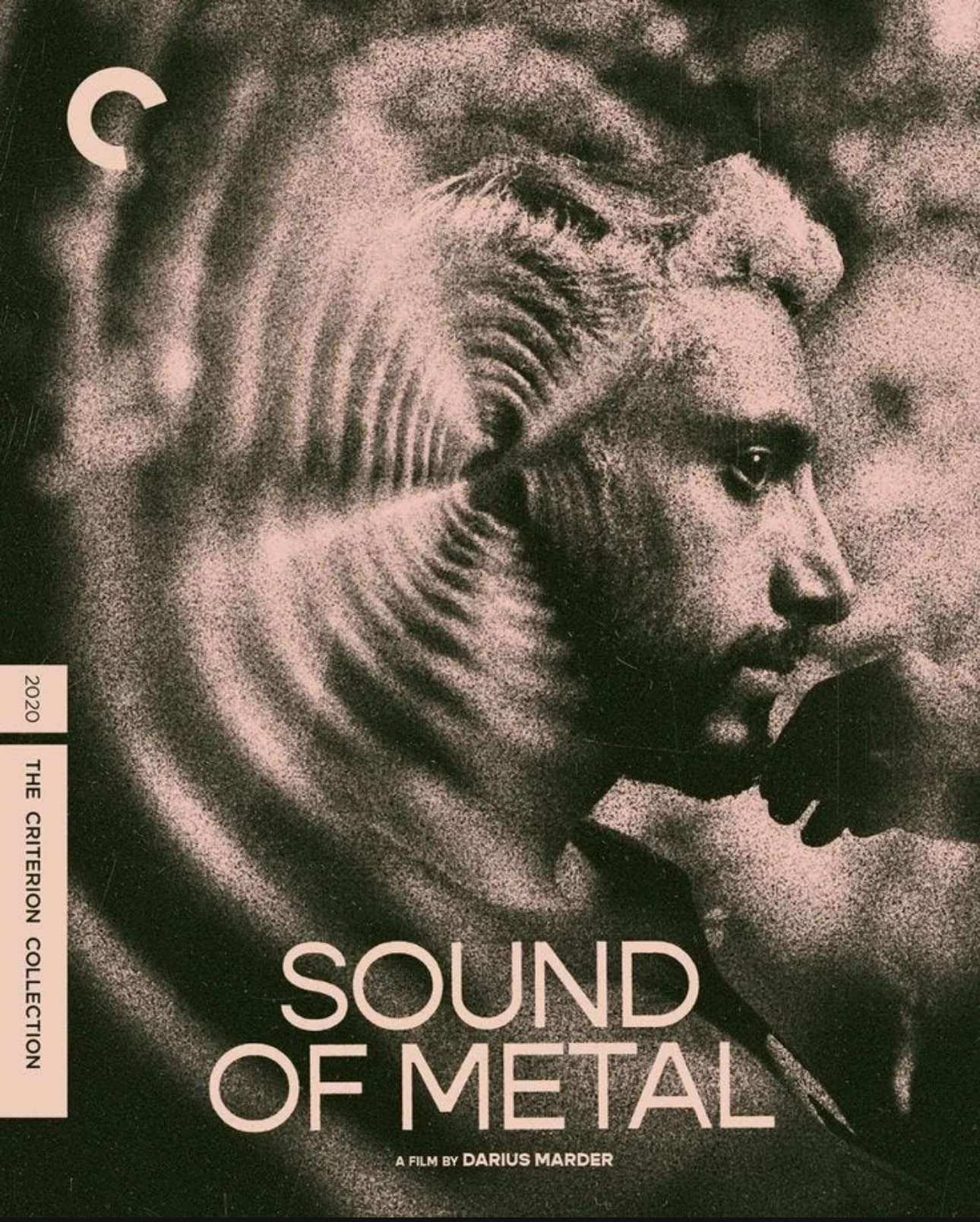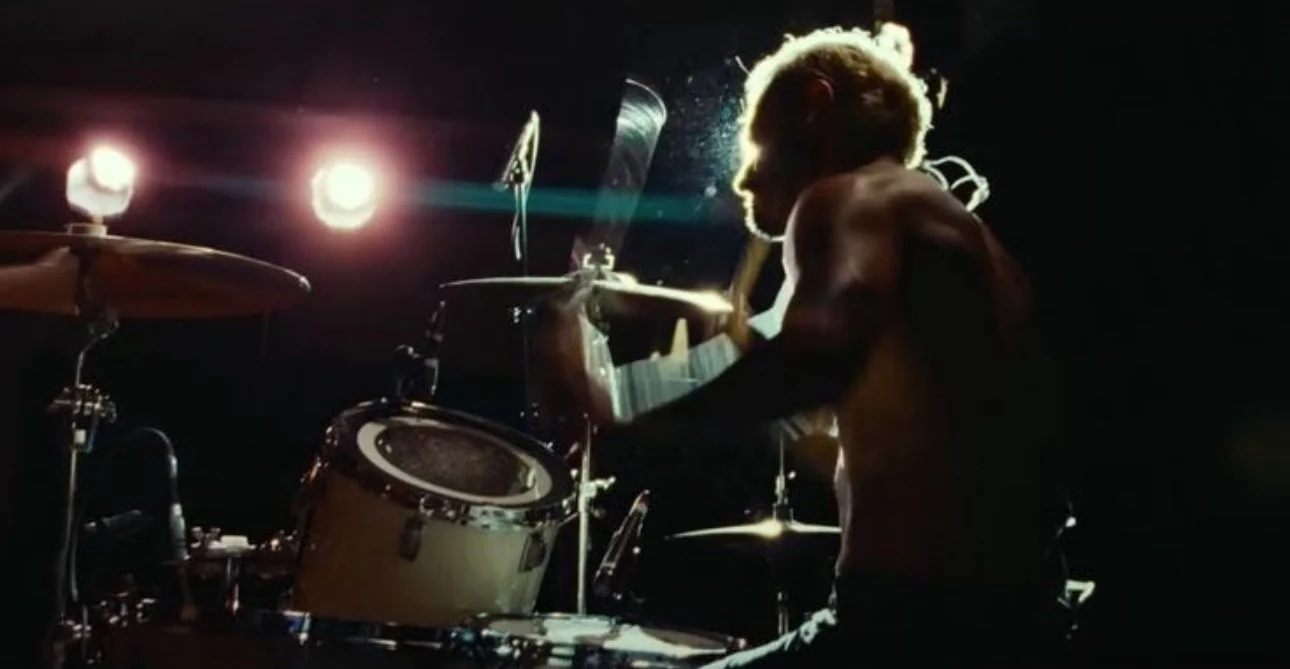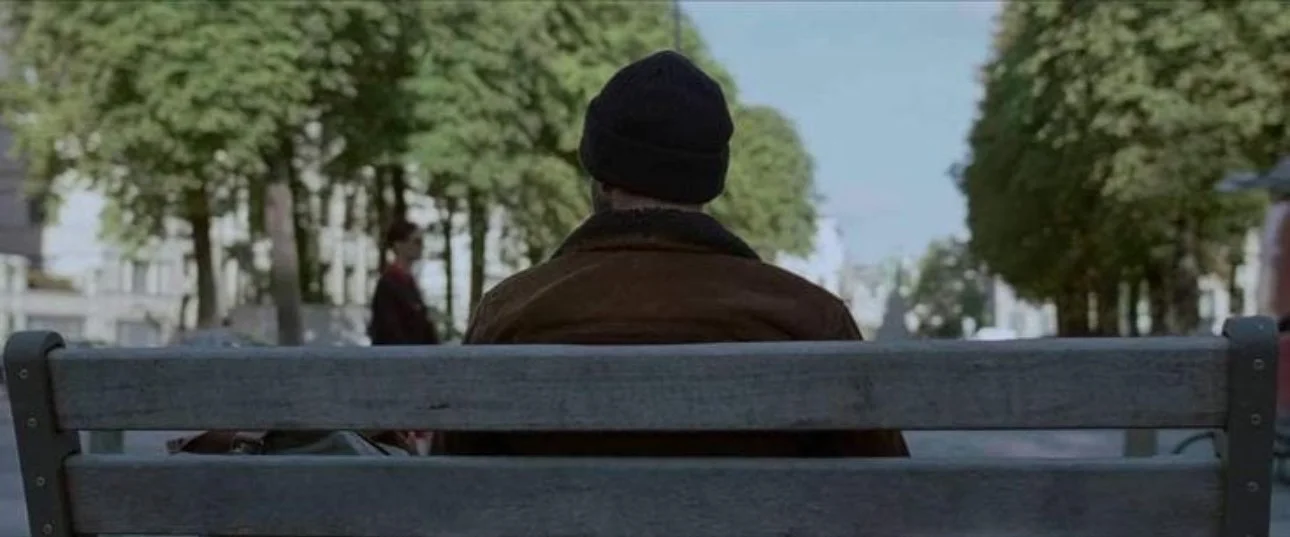Sound of Metal
By Natalie McCarty
Only a select few films possess the extraordinary ability to resonate with us, forging a lasting impact that endures long after the credits roll. It all begins with the initial impressions, immediate takeaways, and comments on powerful scene work or breathtaking sound design. The enchanting cinematography seamlessly weaves into scenes, leaving an indelible mark on memory. Soundtracks are so perfectly fitting that the film rushes back every time the song plays. Dialogue becomes legendary, quoted with regularity. Performances attain iconic status, catapulting actors into stardom, and directors ascend to become household names.
While truly good movies may leave scenes etched permanently into memory or monologues that can be recited off the top of the head, the mark of truly great films lies in their transformative power. They have the ability to impart lessons that become foundational to our identity. The characters, profoundly relatable, start to influence us, their essence becoming a part of our own.
Taking pride in my discerning taste in movies, I’ve explored a vast array of films, refining my ability to distinguish a phenomenal one from those that are merely good. Darius Marder’s Sound of Metal goes beyond the realm of merely good; it’s a cinematic experience that proves to be life-changing.
Sound of Metal is a poignant drama that follows the life of Ruben Stone, a heavy metal drummer, played by Riz Ahmed. His life takes an unexpected turn when he begins to lose his hearing rapidly. Faced with the harsh reality of his new condition, Ruben struggles to come to terms with his deafness and grapples with the impact it has on his identity as a musician.
In an attempt to cope, Ruben joins a community for Deaf recovering addicts led by Joe, portrayed by Paul Raci. As Ruben learns to navigate his new life within the Deaf community, he must confront his own inner demons, including addiction and a tumultuous past. The film artfully explores themes of acceptance, resilience, and the transformative power of embracing change.
Sound of Metal has been acclaimed for its immersive sound design, compelling performances, and sensitive portrayal of Deaf culture. Riz Ahmed’s portrayal of Ruben earned him widespread praise and recognition, and the film itself received several accolades, including Academy Awards for Best Sound and Best Film Editing. The movie provides a thought-provoking exploration of one man’s journey through loss and self-discovery.
Engaging in a cherished family tradition, we make it a point to watch every film nominated for the Academy Awards each year. The goal is to immerse ourselves in each cinematic masterpiece before the grand night, ensuring our predictions for the winners in each category stem from our personal opinions rather than the critics’ consensus.
Reflecting on the 2021 Academy Awards, I must say it stands out as one of the finest selections of films in recent memory. The diverse and compelling array of nominees captivated our attention, making the annual tradition even more thrilling and rewarding.
In the lineup of frontrunners from that year were Judas and the Black Messiah, The Trial of the Chicago 7, Minari, Tenet, Nomadland, and The Father, each residing on two very different ends of the tonal spectrum. Half of the films embraced a highly intense, political, and emotionally charged narrative, while the other half exuded a nostalgic essence, focusing on family hardships and tenderness. The prevailing theme of that year undeniably revolved around vulnerability, and Sound of Metal skillfully positioned itself as a bridge between these two distinct energies. It offered a unique blend of intense emotion and a quiet stillness that set it apart in the cinematic landscape.
Numerous elements contribute to propelling the narrative forward in Sound of Metal — from Riz Ahmed’s impeccable acting to the strategic use of sound, along with the tenderness infused by the choice of camera work and coloring. However, what truly distinguishes Sound of Metal for me is its adept utilization of minimal dialogue. The deliberate scarcity of spoken words remarkably enhances the film’s overarching theme and intensifies the yearning for stillness, allowing the audience to connect more deeply with the characters and their inner struggles.
Riz Ahmed’s portrayal of Ruben is imbued with a palpable restlessness that resonated with me on multiple levels, evoking both relatability and empathy. I found a personal connection to his unwavering commitment to his career, a sentiment I really share. For even after being informed by doctors that his excessive drumming was the primary cause of his hearing loss, Ruben defiantly performs at a concert right after the appointment.
The deliberate choice of drums serves as a catalyst for both the director and the audience. Drums, being intense and passionate, provide an underlying beat that holds everything together. A skilled drummer possesses the power to make or break a song, and the loss of drums mirrors the unraveling cohesiveness in Ruben’s band and his relationship with the lead singer.
As the film unfolds, Ruben experiences a cascading series of losses — his hearing, career, relationship, home, sanity, and sense of self. The life he once knew on the road with his band stands in stark contrast to the quietude of the Deaf rehab for recovering addicts, where he now resides. This shift presents a profound challenge for Ruben as he grapples with the stark difference between constant noise and innate stillness, leaving him feeling displaced.
At the rehab, under the guidance of Joe, Ruben faces the overarching challenge of embracing the stillness, urging him to confront and accept the realities of his new life rather than seeking distraction. However, as Ruben begins to find a sense of belonging in this new environment, he jeopardizes it by opting for cochlear implants against the rules of the rehab. This decision leads to his expulsion, prompting him to leave for Europe in search of his girlfriend, Lou.
Upon reuniting with his girlfriend, the fissures in the life he clung to become evident. Ruben no longer fits into the mold of the existence he desperately clung to and was unwilling to release. The codependent relationship and destructive lifestyle that defined his past now seem incompatible with the person he has become. Despite his ardent efforts to maintain this life, it becomes apparent that his sacrifices have led him to a point of sickness, as he fought relentlessly to keep a life that no longer embraced him.
In a poignant final moment between Ruben and Lou, he liberates them both with a heartfelt acknowledgement: “You saved my life. You made it…you made it beautiful.” Despite the heart-wrenching nature of this realization, by letting go of the profound love they once shared, Ruben grants them the freedom to cease living solely for each other. Instead, they are empowered to embark on individual journeys, choosing to live for themselves.
The film concludes with a transformative scene as Ruben takes a contemplative walk, settling on a bench, and unplugging his hearing aids. In this moment of achieved stillness, a profound sense of peace envelops him. By relinquishing the life he once believed to be his ultimate desire, Ruben opens the door to his true, destined existence. This marks a complete metamorphosis from the shattered boy ensnared by noise to a man who can now find solace in the kingdom of peace.
The resonance with Ruben’s journey in Sound of Metal has deepened for me as life has progressed. The film, initially relatable to any viewer, now holds an eerie parallelism to my own life. In 2022, I experienced a loss of hearing in my left ear, a challenge that has continued to intensify over time. Much like Ruben, I was caught in the struggle of holding onto a life in New York, fighting daily for acceptance in a situation that was causing harm. Similar to the character, I found myself unable to walk away from something that was evidently detrimental to my well-being.
While not grappling with addiction, I found myself addicted to people and the busy lifestyle I embraced in New York. The city had so profoundly intertwined with my identity that I began losing sight of my true self. The rupture of the life I thought was my destiny, although painful, became a catalyst for a significant realization. This film often crossed my mind as a reminder that true peace can be found in stillness. For a long time, peace had eluded me, but the journey of rediscovering stillness has become a crucial part of my ongoing self-discovery.
Watching this film feels like a reflection on one’s own life. I aspire to embody the stillness and peace that Ruben finds in the final shots of him on the bench. Sound of Metal is one of those profound films that imparts a lesson, regardless of your direct connection to the storyline.
For me, this film offered me a fresh perspective and a renewed lease on life. It liberated me in a way that nothing else had before. It granted me the courage to sit in the present, no matter how uncomfortable, and instead of being solely focused on pushing through to the next moment, it taught me that it’s okay to just exist. It’s okay for life plans to change. It’s okay to be still. It is enough to simply be.





